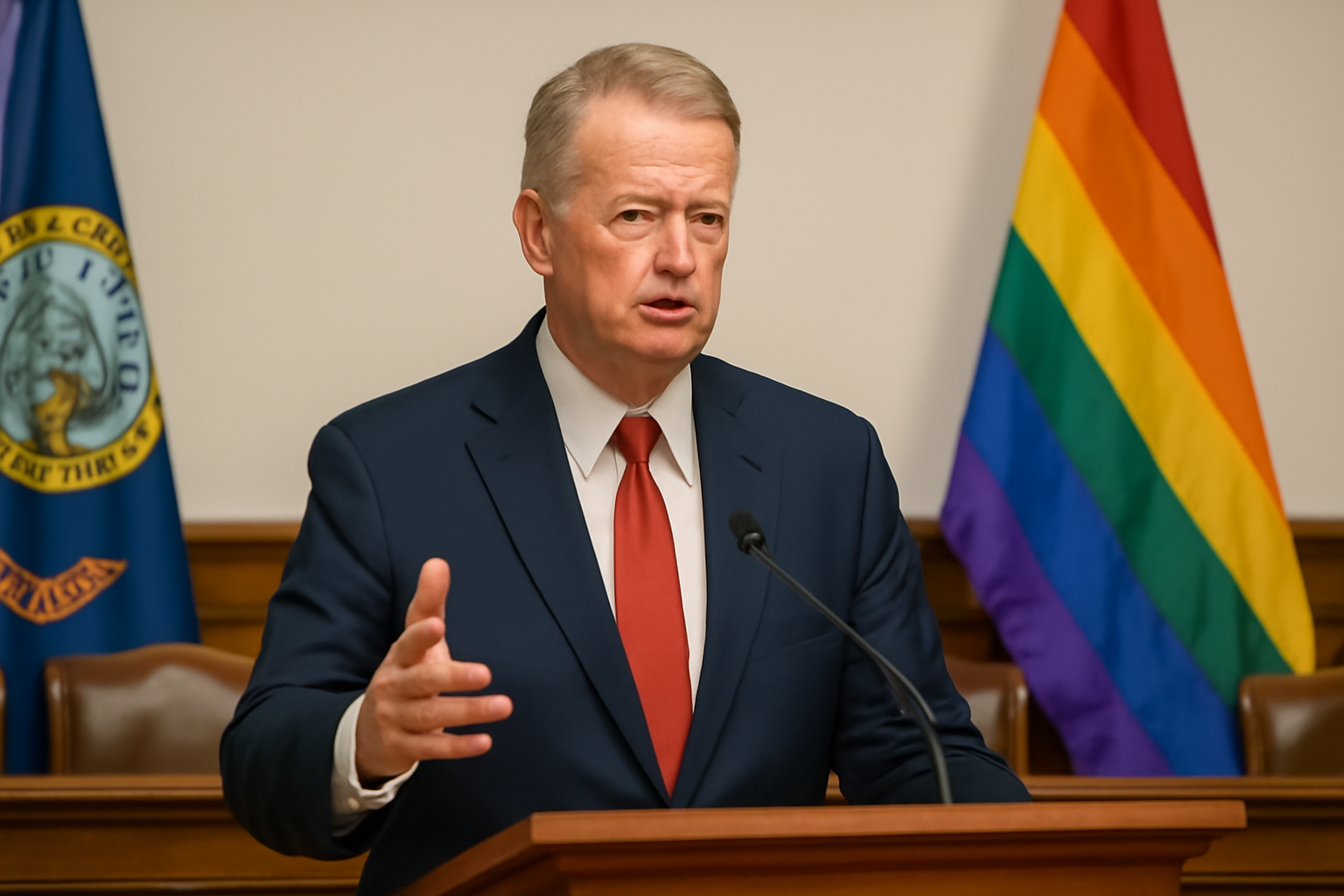
In a controversial move that has sparked significant debate and concern, a group of Republican lawmakers in Idaho have introduced a resolution aimed at challenging the current legal status of marriage equality. This resolution, if successful, could have far-reaching implications for LGBTQ+ rights both within the state and potentially across the nation. The proposal has been met with swift criticism from civil rights advocates who see it as a direct attack on the freedoms and rights that have been hard-won over the years.
Background and Context
Marriage equality in the United States was established by the landmark Supreme Court ruling in Obergefell v. Hodges in 2015. This decision guaranteed the right to marry to same-sex couples across the country, marking a monumental victory for LGBTQ+ rights advocates. However, the political landscape has shifted significantly in recent years, leading to renewed efforts by some conservative groups to revisit and potentially overturn this ruling.
In Idaho, this newly introduced resolution represents one such effort. Proposed by a faction of the state's Republican legislators, the resolution calls for the state to officially oppose the federal mandate on marriage equality and support efforts to allow states to define marriage as they see fit. This move is part of a broader trend among certain conservative circles to challenge federal authority in favor of state rights, particularly on social issues.
The Resolution's Implications
While the resolution itself does not have the power to change law, it is a symbolic gesture that reflects the attitudes and intentions of its proponents. Should similar measures gain traction in other states, it could lead to a concerted push to reexamine and potentially reverse marriage equality at the national level. Such a scenario, while currently speculative, raises significant concerns among LGBTQ+ advocates who fear a rollback of civil rights.
Civil rights organizations have been quick to condemn the resolution, arguing that it undermines the principles of equality and nondiscrimination. They stress that marriage equality is not only a legal issue but also a matter of fundamental human rights. The resolution, they argue, threatens to undo years of progress and could lead to increased discrimination against LGBTQ+ individuals.
Public Reaction and Political Response
The introduction of the resolution has ignited a firestorm of reactions from both within Idaho and across the country. Supporters argue that it is an important step in reasserting states' rights and allowing local communities to make decisions based on their values. Opponents, however, view it as an outright attack on LGBTQ+ citizens and their families.
Many local and national politicians have weighed in on the issue, with Democrats and LGBTQ+ allies voicing strong opposition to the measure. They emphasize the importance of protecting the rights and dignity of all citizens, regardless of their sexual orientation. Some have pledged to fight against the resolution and any similar efforts that might arise in the future.
The Broader Impact on LGBTQ+ Rights
This resolution is not happening in isolation. Across the country, there has been a noticeable increase in legislation and political rhetoric targeting LGBTQ+ rights. From bills aimed at restricting transgender athletes from participating in sports to debates over bathroom usage and gender identity, the LGBTQ+ community finds itself defending hard-won rights on multiple fronts.
The potential consequences of this resolution, if it gains broader support, could extend beyond just marriage equality. It could embolden those who wish to impose further restrictions on LGBTQ+ people, affecting everything from adoption rights to employment protections.
The Way Forward
As the debate continues, LGBTQ+ advocates and allies are urging for increased awareness and vigilance. They call on citizens to engage with their local representatives, participate in discussions, and advocate for the protection of equal rights for all. The ongoing dialogue highlights the need for continuous efforts to safeguard the progress made and to promote an inclusive society where everyone is treated with dignity and respect.
In conclusion, while the resolution in Idaho may be symbolic, it underscores a critical issue facing the nation. The fight for LGBTQ+ rights is far from over, and it requires the collective effort of individuals and organizations committed to equality and justice.
Related Posts
Triumphant Trans Woman Wins Legal Battle and Inspires Others to Stand Up for Their Rights
Breaking new ground: a landmark victory in transgender rights After battling in courtrooms and enduring endless challenges, Diana Portillo, a transgender woman, has secured a monumental victory in her decade-long fight against workplace discrimination. The result? Nearly $1 million awarded in a historic settlement. But this isn't just a win on paper—it represents a powerful precedent in combati [...]
Pride Month in Latin America: Protests and Demands for Equality
**Celebrating Pride and advocating LGBTQ+ rights in Latin America** Pride Month in Latin America was a lively mix where celebration met activism. Communities united, not just throwing a party but making a stand—demanding equality and pushing governments toward better protection and rights recognition. Throughout Latin America, pride events erupted in marches and cultural displays, each with a c [...]
Transgender Erasure Actions Implemented by National Park Service
```html Trump administration's impact on national park service and transgender recognition The Trump administration made notable moves in undermining transgender representation, which included directing agencies like National Park Service not include "T" and "Q" when they refered “LGBTQ” in any official communication. This move seems part a broader plan by this administration aimed at reducin [...]